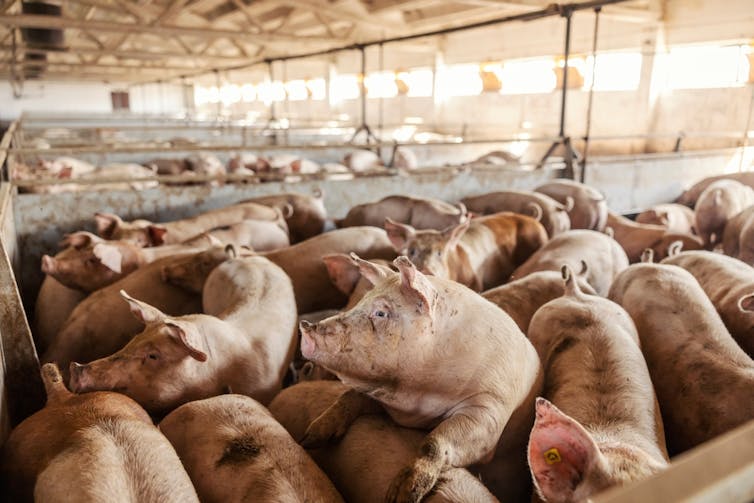The idea that autism is caused by vaccines has recently been revived by Robert F. Kennedy Jr., the presumptive nominee for US Secretary of Health and Human Services, as well as by president-elect Donald Trump. When asked about vaccines at a recent press conference, Trump reportedly said there was “something wrong” with rising autism rates, adding: “We’re going to find out about it.”
From a research perspective, there is little left to discover about vaccines used in long-standing nationwide vaccine programmes, such as diphtheria, tetanus, whooping cough, polio, measles, mumps and rubella. There is strong data from different countries showing that these vaccines do not cause autism or underlie the vast increase in autism diagnosis rates. So why do suspicions that vaccines cause autism remain?
1. Unawareness of evidence
Reliably and accurately communicating research results to the public is difficult. Research results usually stay in small research or clinical communities. Research is rarely accessible and researchers have few incentives to communicate findings outside of their scientific channels.
Popular media is typically superficial and often primarily interested in controversy that generates public attention.
2. Challenges understanding the science
Science is complicated and in medicine there are rarely absolute truths. The public, however, might expect clear consensus or have difficulty grasping the precise nuance of the science and its findings.
Evidence shows that vaccines do not cause autism or are the reason for increasing diagnosis rates. But it is also in the nature of science that it can neither verify nor exclude totally that vaccines contribute to autism in single individuals.
They protect against viruses and bacteria that cause significant levels of death and human suffering. Vaccine programmes thus have a good risk-to-benefit ratio but are not perfect.
3. Doubts of science
The public may have doubts about science and scientists. Science often delivers probabilities and models, not absolute truths.
This might be disappointing or misunderstood as being no better than individual attitudes or opinions. Although not true for vaccines and autism, evidence can be contradictory and difficult to replicate, reinforcing public doubts.
The human need for immediate and simple explanations for complex issues fuels misbelief. The public may also mistrust scientists due to experiences of elitism, reports of researchers not following good scientific practices, and recurring conspiracies that scientists are accomplices of the pharmaceutical industry.
4. Invisible success of vaccine programmes
Vaccination programmes are among the most cost-effective public health interventions available and have averted deaths and long-term disease on a global level in the last decades.
This success has made most diseases invisible in many countries today. The absence of these diseases generates implicit beliefs that vaccinations are unnecessary.
5. Vaccines cause immune reaction
To reach the goal of immunisation, vaccines must cause an immune reaction. Therefore, a transient inconvenient physical reaction is a sign of success, and the logic of vaccination.
This alone might be counterintuitive and feed doubts about vaccinations. Compared to other drugs, only the side-effects are experienced, and the main effect is preventive, not immediately experienced.
6. Parallelism of events
Autism is a neurodevelopmental condition commonly appearing in the first years of life. Initial autistic behaviour may coincide by chance with vaccination time points or follow them and mix with immune reactions.
Making a connection between vaccination and the appearance of autism in these cases is inevitable. But correlation is not causation.
7. Drugs in infancy without an emergency
Ethical issues arise when people make decisions for others regarding drugs or feel coerced to take them. This is particularly true for infancy where parents must consent for their babies.
It can feel intuitively wrong to interfere with nature and invasive to give a series of shots to a fragile human being in early development in the absence of a medical emergency.
8. Actual harms from less-well established vaccines
Benefits and risks cannot be generalised across all vaccines. Vaccines that are part of long-standing vaccination programmes have good evidence to back them, indicating a convincing risk-benefit ratio.
New vaccines are not ensured in the same way. For instance, the swine flu vaccine during the 2009 pandemic is suspected of having caused 1,300 cases of narcolepsy in Europe.
We must distinguish between well-established vaccines and those developed within a short period. It seems that necessary discussions around the safety of less well-established vaccines affect trust in established ones.

9. Polarised debate of vaccines
Open societies build on trust, freedom of speech and debate – but also on shared responsibility. Recent years have seen a polarisation of views around many topics, including vaccinations, not at least fuelled by the COVID crisis.
The urgency of the situation and need for solidarity left little space and time for discussion in society and marginalised or stigmatised even moderate sceptics. The latter has surely harmed trust in vaccines more generally.
Bölte discloses that he has in the last 5 years acted as an author, consultant, or lecturer for Medice, Takeda and LinusBio. He receives royalties for textbooks and diagnostic tools from Hogrefe, UTB, Ernst Reinhardt, Kohlhammer, and Liber. Bölte is partner in NeuroSupportSolutions International AB. He currently receives research funding from the Swedish Research Council, Region Stockholm, Prinsparet Stiftelse, Hjärnfonden, Stan Perron Foundation, FORTE, European Union, Sällskapet Barnavård, Promobilia, and the Marcus and Amelia Wallenberg Foundation. Bölte has different commissions of trust roles, among them at Autism Sweden and the International Society for Autism Research.
This article was originally published on The Conversation. Read the original article.







